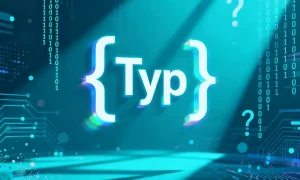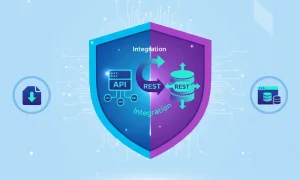Do you ever stop to think about what goes into creating a smooth, interactive website or a silky mobile app? Who positions the shiny buttons just so, so that the experience flows effortlessly, making it natural, effortless, and innocently simple?
Meet your friendly neighborhood Angular developers – unsung heroes who weave endless lines of code into elegant patterns of digital magic. But if you’re a business owner, choosing the right magician can feel like searching for a needle in a haystack, especially when you’re looking to hire remote Angular developers.
Why? Because it’s not just about tech skills. It’s about a delicate mix of coding skills, communication skills, and that elusive dash of creativity. And let me tell you, anyone who disagrees is just whistling past the graveyard.
So, let’s simplify your quest and clear away the clutter: here are the top skills to look for when diving into the murky yet rewarding waters of remote staffing for Angular developers and mobile app developers.
1. An Unquestionable Mastery of Angular Basics
There are enough shiny-eyed, starry-eyed coders that say they’re Angular experts, but true skill isn’t about flashy resumes or trendy buzzwords; it’s about having solid fundamentals. Your Angular developer should have a native level of conversation in TypeScript, Components, Modules, Services, Directives, and Routing. And should not bat an eyelash while speaking of it.
Angular is not merely a utility; it’s an entire ecosystem. Your developer’s interaction with this framework has got to be as with an old buddy: relaxed, instinctive, and extremely trustworthy. A candidate who has a good foundation in Angular basics is able to manage tricky projects effortlessly, walking on a tightwire without even sweating, commendable for mobile app developers.
2. Strong JavaScript and TypeScript Expertise

Picture this: you pay someone to construct a house for you, only to find out they don’t know much about bricks. No matter how glamorous the schematics or trendy the wallpaper – without bricks, the house collapses. For developers of Angular, JavaScript and TypeScript are their bricks and mortar. The same is true when you hire remote Angular developers.
Your coders need not only know JavaScript – they should think in it. They need to be proficient in TypeScript, the JavaScript superset that adds order to the chaos. A JavaScript-talking developer who can’t read sheet music is like an orchestra conductor who is incompetent at it – sounding attractively quaint but catastrophic in reality.
3. Thorough Knowledge of HTML and CSS
Don’t discount the humble HTML or ignore CSS. Okay, yes, Angular works mostly with JavaScript, but a nice-looking user experience is as much about beauty as it is about functionality. HTML and CSS are the stage upon which your Angular developer’s code plays- ignore them, and your audience (your users) will soon take note.
When you’re interviewing remote Angular developers, test them on clean, semantic HTML coding and beautiful CSS styling. A great Angular developer understands these languages so well that even a simple webpage should feel as welcoming as a cozy bookstore on a drizzly day. Great mobile app developers know them well.
4. Responsive and Mobile-Friendly Design Experience
Today, everyone lives inside their pockets – smartphones dominate the world. If your developer doesn’t feel at ease developing responsive, mobile-first applications, you may as well put up a “Closed for Business” sign outside your digital door.
Proficient Angular coders also need to be experienced mobile app coders, able to make their designs look and feel as if born naturally on the screen, regardless of size. A coder who fails to understand responsive design is like a pianist who plays majestically on a grand piano but falters when faced with a keyboard – good in theory, but appallingly impractical.
5. Understanding RESTful APIs and Backend Integration

Angular does not exist in a vacuum. It moves elegantly with server systems via APIs, the unseen strings that bind data and interfaces together. Your perfect remote Angular developer knows how to communicate seamlessly with RESTful APIs, getting data, posting changes, and dealing with errors without skipping a beat.
Think of APIs as diplomatic envoys between the frontend and backend kingdoms. If your developer can’t master diplomacy, misunderstandings quickly escalate into technical warfare. When you’re involved in remote staffing, finding an Angular developer who speaks fluent API is critical for maintaining peace in your digital empire.
6. Sharp Problem-Solving Skills and Logical Thinking
Coding is really an ongoing puzzle-solving marathon, with every sprint being a fine dance of creativity, logic, and persistence. Your Angular developer shouldn’t merely be adept at recipe-following – they need to improvise, adapt, and create solutions when none are apparent.
When things go wrong – and trust us, they always do – a good developer doesn’t freak out. Rather, they snap their knuckles, sip their coffee quietly, and unravel digital tangles with painstaking care. A developer without problem-solving skills is like a detective who quits when the evidence gets thin – interesting maybe, but worthless in the end.
7. Good Communication and Working Well in a Team
Technical acumen aside, your developer has to be able to communicate well. Particularly in a remote environment, communication is not a nicety – it’s oxygen. Miscommunications, much as spilling marbles down stairs, quickly and inevitably result in catastrophe.
Your remote Angular developer needs to articulate clearly, pose thoughtful questions, and cooperate seamlessly with your current staff. Without effective communication, even the most genius code is just meaningless sound – well-meaning maybe, but unintelligible all the same.
8. Familiarity with Version Control (Git) and Deployment Pipelines

Version control is not a “nice-to-have”; it’s a lifeline. Picture writing a masterpiece book but being unable to save your changes. Insanity, isn’t it? Your Angular devs need to be at ease with Git and so forth – basically, their safety net.
They must be at ease with creating branches, pushing code, merging conflicts, and successfully integrating changes. And of course, the more experience they have with automated deployment pipelines, the better, because deploying an application should be more like releasing a dove into the air than playing with flaming torches.
9. Quick Learning and Adaptability
Technology advances faster than fashion. The Angular master of today can be tomorrow’s dinosaur if she or he refuses or cannot quickly adjust. The ideal developer ought to handle new tools and frameworks with enthusiastic curiosity, not fatigued skepticism.
When hiring remote Angular developers, look for those who take joy in exploring the uncharted – quickly learning adapters, nimble adaptors, fervent explorers. Because in tech, stagnation isn’t just inconvenient – it’s deadly.
10. Professionalism and Cultural Fit
Yes, coding skills do count, but just as important is having someone who fits the culture of your company. Even in a remote environment – maybe especially there – culture is incredibly important. The right developer should have your same values, same work ethic, and same attitude towards working together.
A harmonious cultural alignment makes collaboration come naturally, communication seamless, and work more pleasant for all. Keep in mind, you’re not hiring a skill set – you’re bringing someone on board your ship. Pick carefully, or face mutiny.
Wrapping Up
Discovering and employing top-notch remote Angular developers is not a matter of chance or playing a guessing game; it’s knowing the abilities and qualities your project requires. From being an Angular master in the fundamentals to being responsive design and API integration masters, problem-solvers, and seamless communicators, the right combination makes a developer worth their weight in gold.
By reading this guide, you’re already ahead of the game, taking the overwhelming challenge of remote hiring and turning it into a doable, fulfilling experience. Remote Angular developer hiring is not merely hiring for a position – it’s choosing the master builders who will construct your digital vision into a reality.
So be patient, pose the proper questions, and keep in mind: it’s simple to find talent, but to find the right talent – that, my friends, is real magic!



